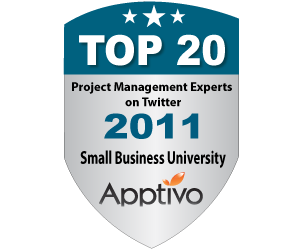Ellen
Gottesdiener (EBG Consulting)
and Ainsley Nies (Acorn Consulting) kicked
off the first Agile workshop of the 2013 PW&WCBA by emphasizing truth-telling
with regard to Agile adoption. When we
discuss the who, what and why of Agile, we must be willing to be honest about
where we are in our progress. This
includes being honest about the adoption challenges we face. Once we are transparent, we can take steps to
overcome the challenges and advance our Agile implementation.
The duo went on to encourage
each person to identify her progress on the spectrum of traditional versus Agile
practices in areas like management focus, culture, design, change, and value. As
participants physically moved up and down the spectrum (created by Ellen and
Ainsley standing at opposite ends of the room), discussion ensued about how
participants may be more mature in some areas of Agile, but have opportunities
for improvement in other areas. The
activity also revealed that an individual participant may be at one place on
the spectrum, where the actual organization in which the participant works is
somewhere else on the spectrum. Participants
were encouraged that identifying these types of opportunities and gaps is the
starting point for addressing related challenges and maturing in Agile adoption.
The traditional
versus Agile spectrum activity was a nice transition in to the being Agile
versus doing Agile discussion, where Ellen and Ainsley emphasized that “many
implementations fail because people are so focused on doing Agile instead of
being Agile.” The duo stressed that being Agile means a
change in mindset, where values and principles guide behavior and enable success.
Some of the key values and principles
discussed included thinking with a systems perspective, tolerating ambiguity,
building relationships, and being transparent.
To help participants take the
next steps in being more Agile Ellen and Ainsley directed everyone in starting a
development plan with actions to address the opportunities for improvement
identified during the session.
Ellen and Ainsley
shared a number of other insights regarding who is involved with Agile (the
Agile teams) and what those teams do.
One of the more impressive ways I have seen to demonstrate what teams do
(versus just lecturing on it) is the way that the duo structured the
agenda. The agenda items were listed in
an actual backlog. Ellen and Ainsley explained that the session participants
were the users for this backlog. As the
duo progressed through the backlog, they moved items from the backlog to the doing
board and finally to the done board. Participants
were treated like actual users in that they were allowed to add items to the
backlog during the meeting. Towards the
end of the meeting Ellen and Ainsley asked participants to choose which backlog
items they wanted to pull into the current sprint, given that there was only X
amount of time left in the session. This
really drove home the concepts of backlog management and time-boxing.
Finally, in the
spirit of being transparent (according to Agile principles) Ellen and Ainsley
shared with the group a technique they use for handling unexpected change
(which they learned from another expert).
Instead of handling unexpected change with fret and dismay, they instructed
participants to simply shout out “how fascinating!” This takes the initial sting
out of change and allows the necessary steps to be taken for handling that
change. Ellen and Ainsley encouraged
participants to apply the technique during the meeting. The participants did just that. By the end of the session, everyone seemed to
get the point that change happens and you have to be prepared to handle it – not
ignore it or get so worked up that you are unable to move forward.
Overall this session
reinforced key Agile principles in an interactive way that gained (and maintained)
participants’ attention. To that I give
a genuine - how fascinating!
Belinda Henderson,
CBAP, PSM







2 comments:
Belinda, thanks for the detail! I feel like I was there! And thanks to Ainsley & Ellen for sharing! Fascinating, indeed!
Terry
Thanks for the detail, Belinda! I feel as though I were there! And thanks to Ellen and Ainsley for showing, not just telling!
Terry Wiegmann
Post a Comment